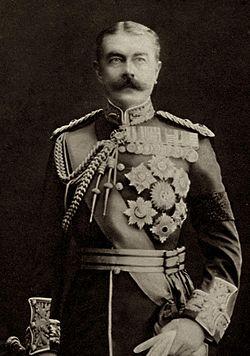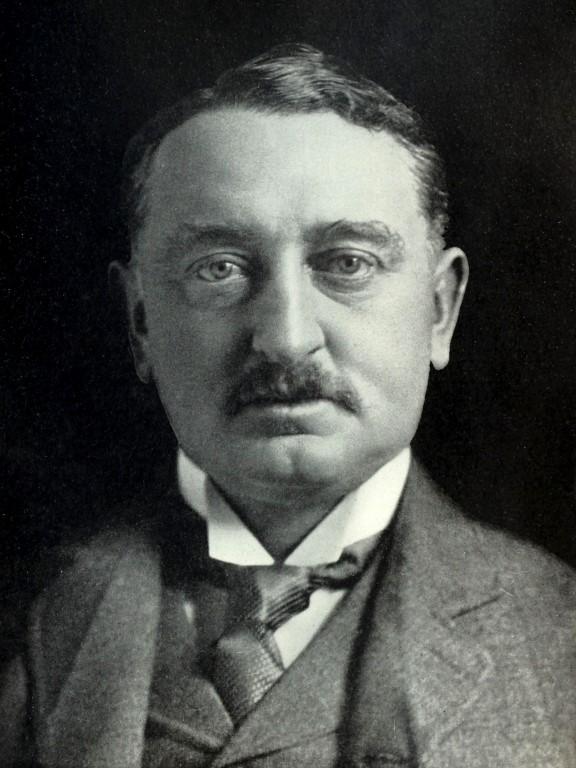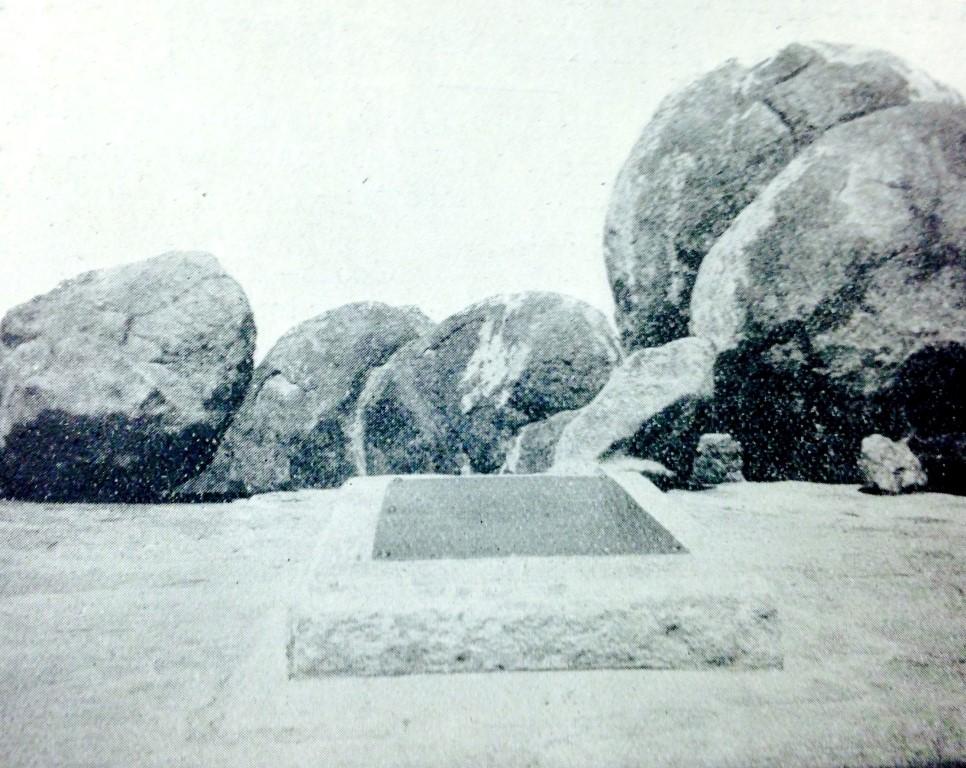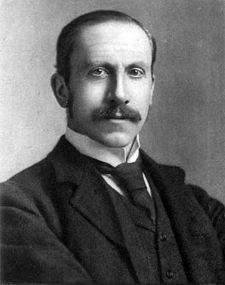Disclaimer: Any views expressed by individuals and organisations are their own and do not in any way represent the views of The Heritage Portal. If you find any mistakes or historical inaccuracies, please contact the editor.
Part of Kitchener Avenue, in Kensington, Johannesburg has been replaced by Albertina Sisulu Highway. Perhaps soon, Rhodes Park, Roberts Avenue and Milner Crescent will be renamed to burnish the heroes of more recent history? Significantly, Cecil John Rhodes statue on the UCT campus has been recently vandalized in a fierce show of anti- colonialism. It might thus be apposite to record something about the lives of those British ‘heroes’ who played such a prominent role in South Africa during and around the time of the Anglo-Boer War, at the turn of the Nineteenth Century. These street names are a comment on the nature of pro-British sentiment just over a century ago. In an extension of the intense Anglophilia of the times, we note that many of Kensington’s other streets are named after British Navy warships.
The four short essays that follow are about men who served Britain when she was strong and ubiquitous. All men wore power with distinction. They were superior and one might guess, unconsciously arrogant, able to focus immense resources, ruthless when the occasion demanded and utterly loyal to British interests. They attended and managed Britain’s affairs in South Africa at the end of the Victorian Age. Might our history have been any different without them? Alas, one has to live with one’s history even though one retrospectively ponders more positive outcomes.
Kitchener (source unknown)
Herbert Horatio Kitchener, eventually Earl Kitchener of Khartoum, was much decorated, and often and rapidly promoted. Born in Ireland and educated partly in Switzerland, he learned French and German. He started his military life as a lieutenant in the Royal Engineers, conducted much survey work and map-making in the Levant. As a military commander he performed brave deeds for the British Empire. He commanded the Egyptian Army which avenged General Gordon’s Khartoum death and defeat at the hands of Sudan’s Mahdi. He beat and embittered the Boers with his ‘scorched earth’ strategy, during the guerilla phase of the Anglo Boer War. To this day, feelings of resentment remain about the way Boer women, their children and black farm workers were herded into unsanitary concentration camps, where care was sparse and the death rate was high.
After the war, he served as Military Chief in India. As Secretary for War, he directed British military and supply efforts during the early phases of the First World War. He raised an enormous army to fight on the Western Front and was a reluctant supporter of the Gallipoli disaster. He blundered as munitions organizer, in that he provided British artillery with shrapnel rather than high-explosive shells, which would have been a more effective weapon in trench warfare. In 1916, he drowned when HMS Hampshire, the cruiser in which he was travelling to discuss war strategy with the Russians, hit a mine close to the Orkneys.
He was powerful and ruthless when the occasion demanded, a solitary decision-maker, unpopular with his peers, never known to have courted a woman, but thanks to vigorous press hagiography, assisted by a handsome, photogenic, magnificently moustached face, he was very popular with ordinary British citizens. He is memorialized all over Britain and his reclining statue, occupies a private chapel in St Paul’s Cathedral.
Rhodes (wikipedia)
Cecil John Rhodes, after whom Rhodes Park is named, came to South Africa, a sickly youth, in the hope his health might improve. He died young, after a string of achievements, the envy of men with far stronger constitutions. He earned his fortune as a Kimberley diamond dealer and with the De Beers Company, cornered and controlled world diamond sales.
During visits to England, Rhodes slowly earned an Oxford degree at Oriel College. Later he endowed the well-known, internationally available, Rhodes Scholarship to his alma mater. He entered politics and became Prime Minister of the Cape Colony. At that time, he hired Herbert Baker the architect, to renovate his home, the famous Cape Dutch showpiece, Groote Schuur. His grand Imperial obsession envisaged a British Africa, complete with railway and telegraph, clear across the continent between Cape Town and Cairo. His implacable and stony ambition, emanates so clearly from his Rhodes Memorial on the lower slope of Devil’s Peak. Fulfilment of this dream, commenced through the machinations of the British South Africa Company, with the annexation of the Rhodesias, now Zimbabwe and Zambia.
Rhodes became a player in Johannesburg gold mining. One of his minor coups was the establishment of the Rand Club. Along with his brother Frank and a group of Randlords such as Lionel Phillips and George Farrar, he became embroiled in the Uitlander vs Kruger politics of the time. He fomented the ill-fated, December 1896, Jameson invasion of President Kruger’s South African Republic. After that extremely provocative raid, both sides began to see war as inevitable. In September 1899, after a series of failed negotiations, Boer armies invaded the British colony of Natal and the Northern Cape.
Rhodes' Grave (South African Railway Magazine)
hodes survived the Siege of Kimberley, built a counter to the Boers’ great Long Tom artillery piece, known as Long Cecil, and died of heart problems in his Muizenberg cottage in 1902. Rhodes was a racist, unremarkable for his times, who perceived blacks as barbaric, inferior. He shepherded Cape legislation to restrict black movement and land holdings and instituted a hut tax to create mine labour. Today, he is seen, depending on one’s outlook, as an extreme but natural product of Imperial capitalism, or, supremacist villain, whose vile memory should be expunged from history. Ironically, he lies peacefully in his lonely rock-girt grave in the Matopos hills close to Bulawayo.
Lord Milner (wikipedia)
Kitchener spent a few military years in South Africa. He conquered and was gone. Rhodes was here for thirty years. Lord Roberts the British C-in-C was here for months only. From 1897, Alfred Lord Milner was High Commissioner for South Africa and governed the Cape Colony. A few months before Johannesburg fell to Field Marshall Roberts, Milner became governor of the Transvaal and Free State Republics. He finally returned to Britain in 1905 after a deeply resented and ultimately unsuccessful attempt to anglicize the former Boer Republics. A small success included the establishment of several schools modelled on English Public Schools; namely, Jeppe and KES boys in Johannesburg, Pretoria and Potchefstroom Boys. However, taking the longer view, he had set in motion the process that led to Transvaal and Free State self-government and ultimately, in 1910, the act of Union which drew together the two former British colonies and the former Boer republics while excluding blacks, Indians and Coloureds from political processes.
Milner came from Anglo-German stock but loved the concept of the superiority of British based civilisation. He was educated in Germany and England, obtaining a first class Classics degree from Balliol College, Oxford. He could have become a journalist or lawyer but with greater interests in practical politics, chose to join the Civil Service when he became personal private secretary to George Groschen, who became Chancellor of the Exchequer. Groschen, recognizing Milner’s talents, sent him in 1889, to serve in Egypt as under-secretary for finance where he helped to protect the country from bankruptcy.
In 1892 Milner returned to London to become Chairman of the Board of Inland Revenue. He was regarded as level headed and objective by both conservatives and liberals. These traits helped his selection to come to South Africa to handle political processes immediately after the Jameson Raid fiasco. Gentle reason was not to prevail however. It appears that Milner’s anglophilia, greatly aroused in the face of Boer recalcitrance, became expressed in imperial ambitions. It is fairly safe to conjecture that he was also influenced by none other than Cecil John. Negotiations with Kruger about allowing Uitlanders citizen-status resulted first in impasse and then, despite Kruger’s last minute concessions, in a protracted and costly war that subjugated gold rich Transvaal and the Free State.
Milner lived in what we know today as the Sunnyside Park Hotel and ran his administration from Castle Mansions in Eloff St. He employed a group of Balliol graduates, known as ‘Milner’s Kindergarten,’ to help in the task of post-war reconstruction. Development was partly funded by 10% taxation on Gold profits and by the importation of some 60 000 indentured Chinese labourers who, for a few years after the war, replaced black workers. Milner was unsuccessful in attracting a large English-speaking immigrant population to settle widely in the two former Boer Republics although thousands came to work on the mines and find ancillary jobs on the Witwatersrand. Milner Park, the venue for the original Rand Show has been incorporated into Wits University. Milner left South Africa having established a Transvaal representative Government in Pretoria which later developed into self-rule and ultimately, in 1910, the conflict-ridden Union of South Africa within the British Commonwealth.
Sunnyside (The Heritage Portal)
Milner gained further prominence during the First World War when in 1916, he became a member of Lloyd George’s five man War Cabinet where he became friendly with fellow member Jannie Smuts. In 1917, he became Secretary for War. He attended the Treaty of Versailles as Colonial Secretary and was instrumental in giving Congo territories to the Belgians for their help in driving the Germans from Tanganyika.
Lord Roberts (National Library of Ireland)
Frederick Sleigh Roberts was the General who won the Anglo-Boer War. But his weakness in logistics [to use a modern word for transport and supply management] in the vast empty spaces of South Africa, was so poor, that more British soldiers died of typhus than bullets and his women and children, concentration camp prisoners, perished in thousands. He was pictured as lovable ‘Bobs’ in the popular British press. By all accounts, he generally looked after his men.
Roberts was an ambitious, skillful, self-publicist. Rudyard Kipling wrote a famous adulatory poem about him. He could be ruthless, as is required of all military commanders faced with the existential question, ‘win or lose?’ At first the war did not go well for Britain. The Boers were ascendant in northern Natal and they also laid siege to Kimberley and Mafeking in the North West. Command was transferred from General Sir Redvers Buller to Roberts, who landed in Cape Town with a large force of 14 000 troops. Following the railway line north, Roberts’ forces soon relieved Kimberley and pressed on to take Johannesburg in May 1900, and Pretoria several days later. Believing that the fighting was over Roberts relinquished command to Kitchener and returned to Britain.
Johannesburg Occupation Plaque Gandhi Square (The Heritage Portal)
The Boers under Generals such as Smuts, de la Rey, Botha and de Wet refused to capitulate and the war entered the guerilla phase. Kitchener shouldered responsibility for the remaining drawn-out and increasingly bitter, warfare. Roberts was a product of Britain at the pinnacle of its global power and success. He was born in India into a military family. His father was General Abraham Roberts of Waterford, Ireland. He was educated in England at Eton and Sandhurst. As a junior officer, he fought in the Bengal Horse Artillery during the Indian Mutiny of 1857, where he won the Victoria Cross. He fought in Abyssinia and directed two victorious battles in the second Anglo-Afghan war for which in 1892, he was honoured by the title: Baron Roberts of Kandahar and Waterford. He spent a very short spell in South Africa and in 1895 became C-in-C, British Forces in Ireland. From there he was called to save the Anglo Boer War reverses.
From South Africa Roberts became C-in-C of all British forces until the post was abolished in 1904. In 1859 Roberts married Norma, Henriette Brews. They had six children, of whom, three survived infancy. Roberts’ son, Frederick, Hugh, Sherston, VC, was killed at the Battle of Colenso in December 1899. Father and son Roberts, are one of only three such pairs invested with the decoration. Roberts died of pneumonia in St Omer, France, where in 1914, he was visiting Indian troops fighting with the British.
Article compiled from various secondary sources available online. Words and expression, are entirely those of the writer
[Note from Isabella Pingle of the Kensington Heritage Trust - Kensington has 117 suburban streets – all in alphabetical order, named after 3 British Generals, 3 British notables of the Anglo-Boer War, 76 battleships, 16 of which derive from mythology, 22 named after English names, countries and towns.]
Comments will load below. If for any reason none appear click here for some troubleshooting tips. If you would like to post a comment and need instructions click here.




